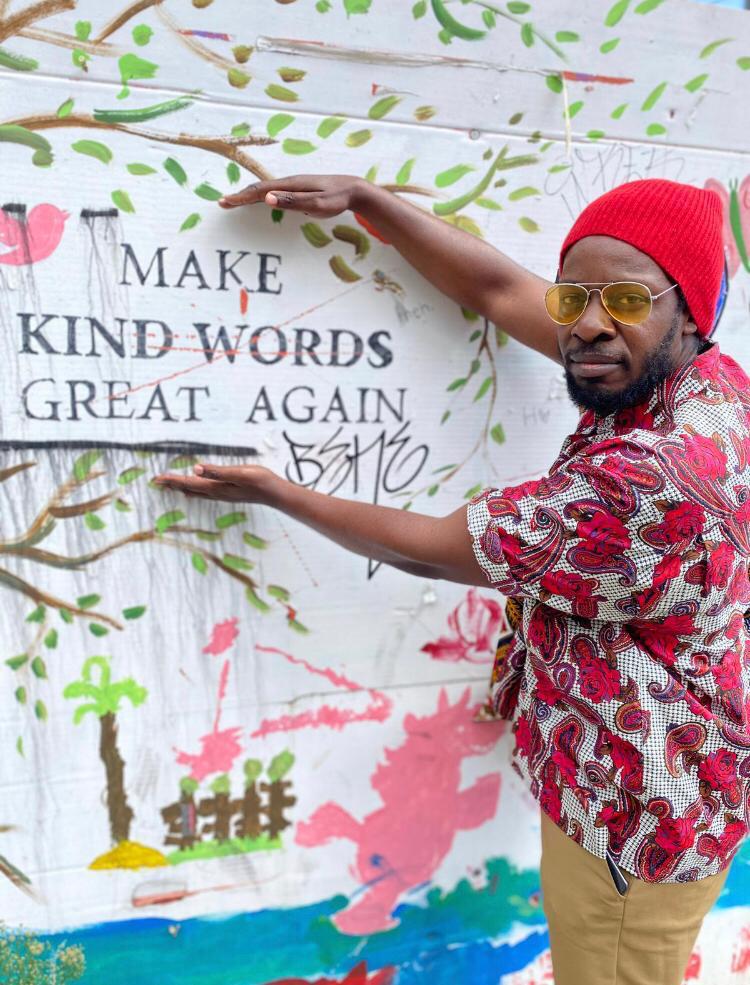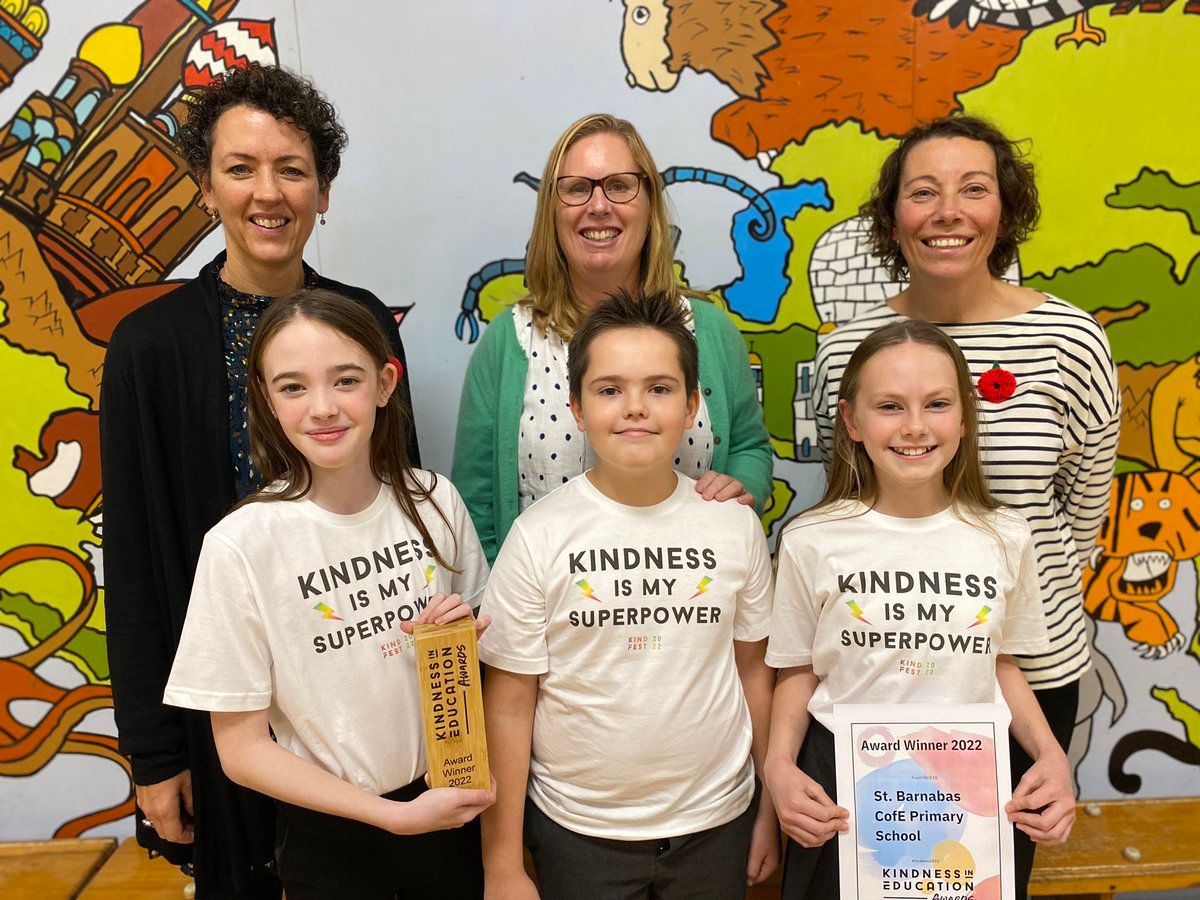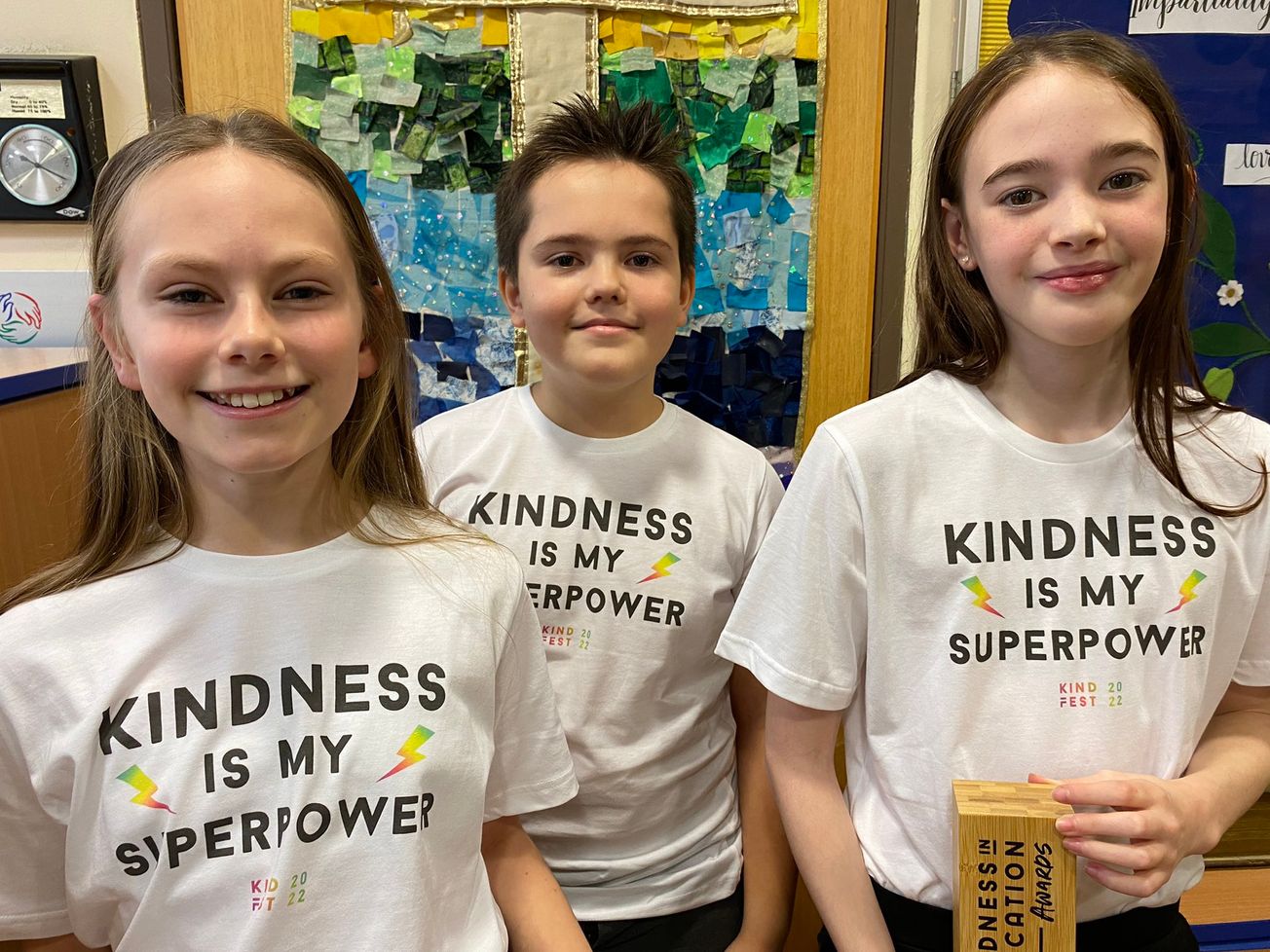By Sayoni Ghosh, MA English Literature
In 2020, at a time when the world was grappling with the anxiety and fear of the pandemic, higher education leader Susie Hills conceived the KindFest initiative, uniting communities through incredible stories and acts of kindness. Epigram had the remarkable opportunity to speak to Susie about this year's annual KindFest event and the new Kindness in Education Awards, which celebrate, inspire and encourage projects related to kindness and compassion in schools, colleges, and universities.
Sayoni Ghosh: The annual KindFest event is a wonderful opportunity for individuals and communities to come together and share their kind contributions to society at the grassroots level. What inspired you to initiate KindFest in 2020?
Susie Hills: I started reading everything I could on kindness four or five years ago and its impact on the world. Through this, I came across amazing authors and speakers who talked about kindness and its power to change the world. More importantly, it was my mother who inspired me on my journey of kindness. Many people told me when she died, ‘She was so kind. She brought people together’—I realized that I could create an online festival during lockdown, when people felt so isolated, that could give people a chance to come together and talk about what could be done to be kinder to one another.
SG: This year’s theme for KindFest is radical kindness. At first glance, it seems like an oxymoron because many people stigmatize kindness, sensitivity, and compassion as forms of weakness. What does radical kindness mean to you and how would you explain it to people who hold such stigmas?
SH: There is a big difference between kindness and niceness. People can be nice or polite, but kindness is so much more powerful. Radical kindness is when we act for the benefit of others, even when it may be really hard for us. People face many difficulties and it is in these difficult situations that we need to challenge ourselves and introspect about what could kindness do and how it can make an impact in these situations.

This can begin by being kind to yourself first, then being kind to the people around you, and ultimately being kind to the planet. So radical kindness is far more powerful than just being nice, polite, or friendly. It is something that takes hard work.
The wonderful thing about kindness is that it has no language or faith. Everybody from all societies knows what it means, and we can witness tremendous acts of it all around the world: a part of daily life in Naples Italy is Café Sospeso, where an altruistic customer can pay for his or her coffee and also anonymously pay for another coffee for someone in need. It is initiatives like these that create a ripple effect of kindness.
SG: In this age of consumerism and ever-increasing cost-of-living, what differentiates organizations, especially educational institutions that share a strong belief in the value of kindness, from those organizations that don’t hold such values?
SH: Kindness is closely associated with inclusion and diversity. We can see when organizations are truly kind and compassionate in how they work, allowing people to be their true selves and bring their whole selves to work, whatever their background, ethnic identity, religious identity, disability, or sexual orientation might be.
I also think that true kindness is seen in organizations when they look out for the mental and physical well-being of the people whom they work with and organizations which have progressive policies around mental health—that’s a manifestation of true kindness at work.
SG: This is the first time that KindFest is presenting the Kindness in Education awards. How did you conceptualize the award? You have done catalytic work when it comes to impactful fundraising operations in the higher education sector. Has your leadership background been an influence in introducing the Kindness in Education awards?
SH: In some ways, yes. Since I have worked with many universities and through my day-to-day work, I felt that there were lots of league tables ranking educational performance, but none that measured kindness in organisations, and I wanted something that celebrated that. There were so many fabulous projects that existed in schools, colleges, and universities. So, we decided to create a Kindness Award in Education and we have some amazing winners. There have been schools and universities who have taken to heart the message of kindness in the work they do; I hope the winners can inspire other schools, colleges, and universities to follow on and similarly build kindness into their daily work.
We are delighted to announce that RGS The Grange has been named as award winners at the @kindfestUK “Kindness in Education Awards”. The award is the culmination of a range of initiatives introduced over recent years by our School.
— RGS The Grange (@RGSTheGrange) November 15, 2022
🧵 (1/3) pic.twitter.com/ObQjWyes1m
Eight educational institutions were the recipients of this year’s Kindness in Education Award for their projects and initiatives working towards kinder and more diverse spaces. The winners ranged from primary schools all the way to university faculties and international schools.
Just some of the initiatives celebrated by the awards included Wrexham Glyndwr University’s revolutionary project setting up the UK’s first Trauma and Adverse Childhood Experience (TrACE)-informed institution, Abingdon and Witney College’s groundbreaking educational provisions for 14-16 year olds in need of alternative schooling because of past negative experiences, and UCL’s development of a visually adaptive learning method using illustrative cue cards in schools to prevent and stop victimization.
SG: When an educational institution has kindness and compassion as core values and guiding principles, what steps would they take to implement them?
SH: Some of the schools that entered have really interesting anti-bullying policies and activities that help bring children together. For example, what I came across and loved is something called a ‘Buddy Bench’ in a school. There is a bench in the playground and if any child is feeling lonely and he or she doesn’t have anyone to play with, they can sit on the buddy bench and straightaway, another student knows that they want to play and they can come over and sit with him or her and they can go off and play a game. So that’s a really practical way to make sure that nobody is lonely and does not have someone to play with. I think we may need buddy benches everywhere, not just in schools.

SG: You are a ‘kindness spotter’. This is a truly admirable skill because of which KindFest has been able to successfully collate passionate volunteers and speakers into a community with common values. What intrinsic qualities, traits, behaviour, or actions do you see in individuals and organizations that help you detect that these people uphold kindness as one of their core values?
I think an attitude of open-mindedness and acceptance of differences is a great quality in individuals and organizations who are kind. Honesty, tolerance, and integrity would be some of the things from the list that we would want to see in organizations that we work with.
There is a great organization called Timpson, it is a company that cuts keys and does shoe mending and there are a few things by which you can tell that they are a kind organization. One is that they will do dry cleaning free of charge for anyone who has got a job interview and is unemployed. Another thing is that a large percentage of their employees were ex-offenders. So, this company goes out of its way to employ people who need a second chance at life and it gives them that second chance. That immediately says to me that this is a radically kind organization.
SG: How can schools and higher educational institutions encourage and teach kindness to their students? What are the examples that educational institutions can set to inspire students to be proactively compassionate or radically kind?
LoveWell: the gifts that keep on giving
The Key Café Project: the café offering placements to Bristol’s forgotten citizens
SH: I think you can reward kind behaviour in students. I have seen many good examples of giving out kindness awards and prizes in schools to individuals who have gone above and beyond and done things for other people. But at the same time, and I believe that children can learn this at a very young age, you can teach a very simple thing which is to ask one powerful question, ‘What is the kind thing to do?’
Next time, if you ask a child, ‘What would be the kind thing to do?’, they know the answer in their hearts. I think we all do, and I ask myself this question regularly whenever I am faced with difficult challenges and usually it gives me the right answer.
Featured Image: TeamKind / Susie Hills
You can find out more about these inspiring and heart-warming projects on the TeamKind website.








